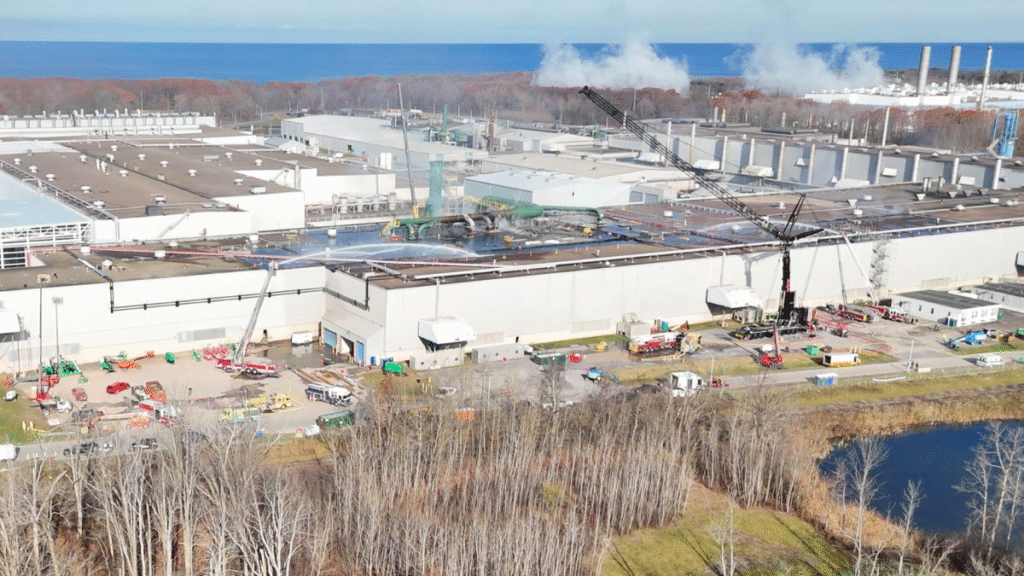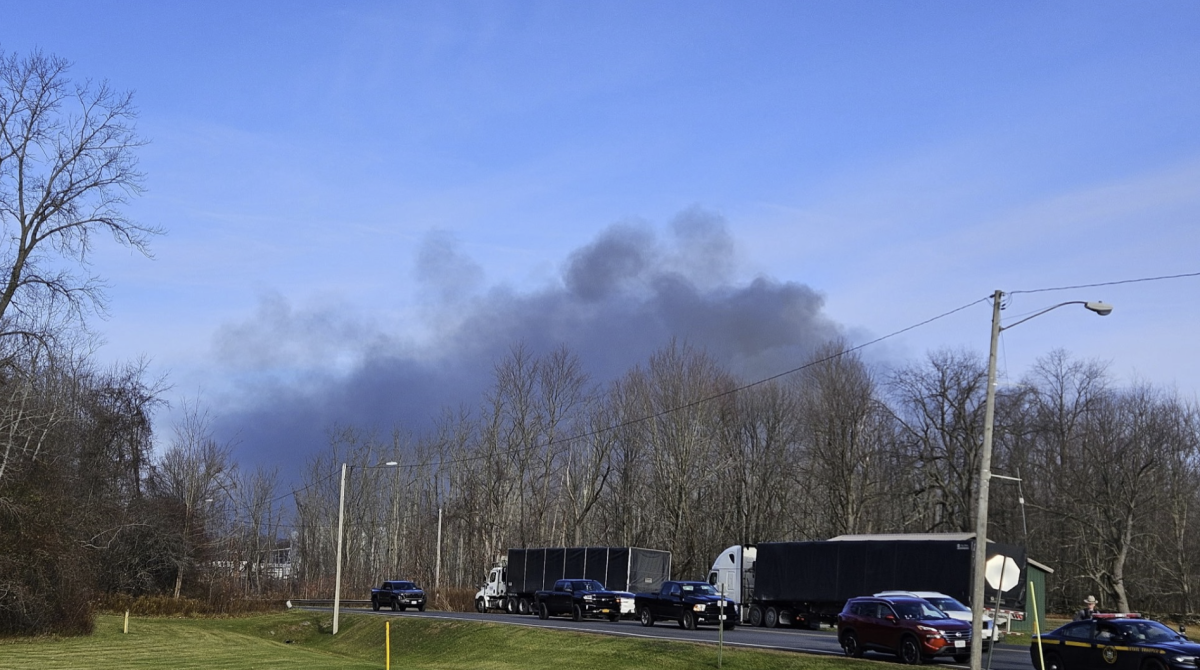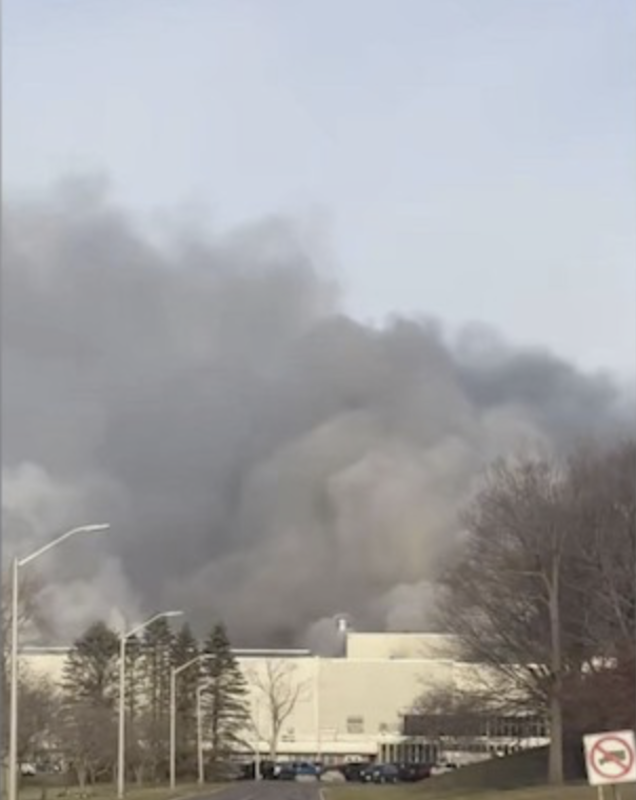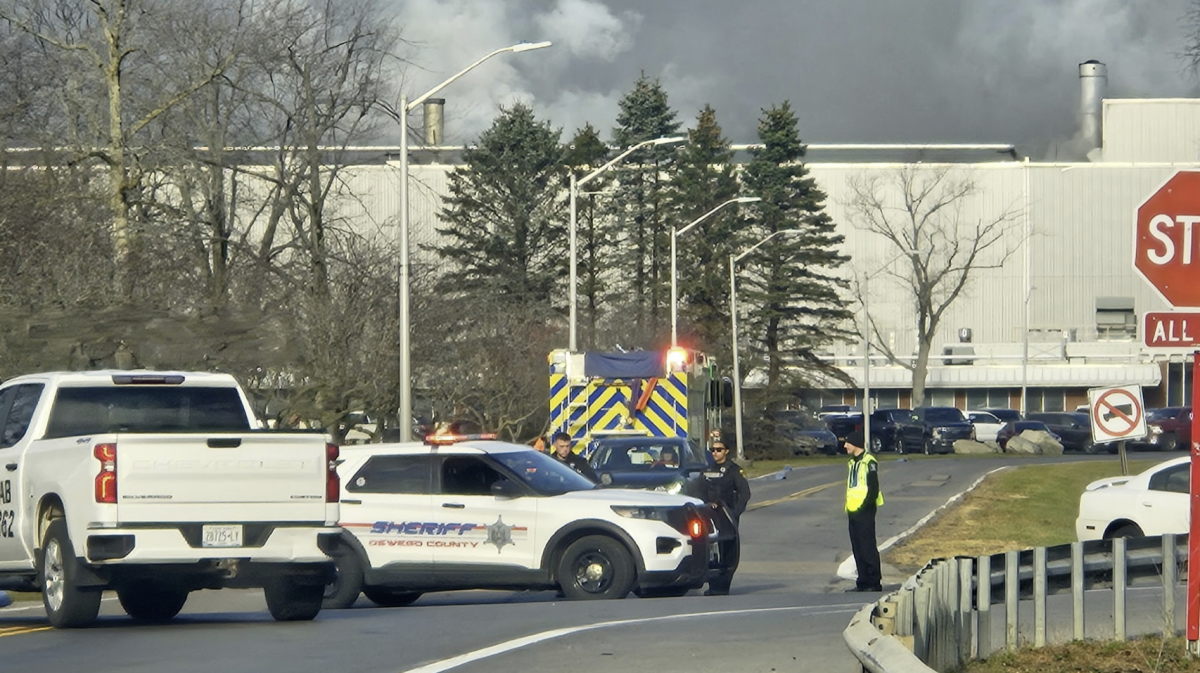
A four-alarm fire broke out Thursday morning at the Novelis aluminum plant in Scriba, New York, marking the third major incident at the site within two months and creating a fresh setback for Ford’s already fragile supply chain. The Oswego County facility supplies 40% of all aluminum sheet used by U.S. automakers, and its output is especially critical to Ford’s aluminum-bodied trucks and SUVs. Emergency crews were dispatched at 8:45 a.m., evacuating all employees as thick black smoke poured from the roof and spread across the surrounding area.
Initial dispatch reports indicated the fire originated in the cold-mill section, the same area involved in September’s large blaze. Although the cause is still unknown, the repeated failures come at a difficult moment for Ford, which is already navigating production pauses, supply constraints and growing pressure around its long-term EV strategy and financial outlook.

A Critical Link in Ford’s Aluminum Supply Chain
Novelis’ plant is central to Ford’s aluminum-body program, supplying the majority of material used for the F-150, F-150 Lightning, Expedition, and Lincoln Navigator. The September fire alone was expected to cost Ford around $1 billion, and analysts estimated production losses of up to $1 billion as output of America’s best-selling truck slowed.
Ford has already endured several production setbacks tied to earlier fires and in mid-October, Ford extended downtime for its aluminum-intensive full-size SUVs because of these earlier fires.

Repeated Disruptions Raise Long-Term Concerns
Thursday’s blaze marks the third fire at the facility in just two months. The first occurred on September 16, a major incident that halted aluminum output for weeks. A second, smaller fire followed on October 10, and now the latest November 20 fire, another four-alarm event, has again hit the plant’s cold mill, the same area affected in September.
Ford had previously expected partial aluminum supply to recover in December, but with the same equipment disrupted for a third time, those timelines are now far less certain.

Why It Matters
The back-to-back fires highlight how dependent U.S. automakers remain on single-source suppliers for critical materials. Aluminum is the backbone of Ford’s high-volume trucks and SUVs, and repeated disruption threatens production schedules, pricing stability and future EV plans.
Ford is already dealing with significant losses from electric vehicles, tight profit margins, and unpredictable demand. Any more disruptions to its most profitable models could lead to serious financial issues. This situation highlights how environmental, regulatory, and supply-chain challenges are coming together, making the industry’s ecosystem more delicate.

